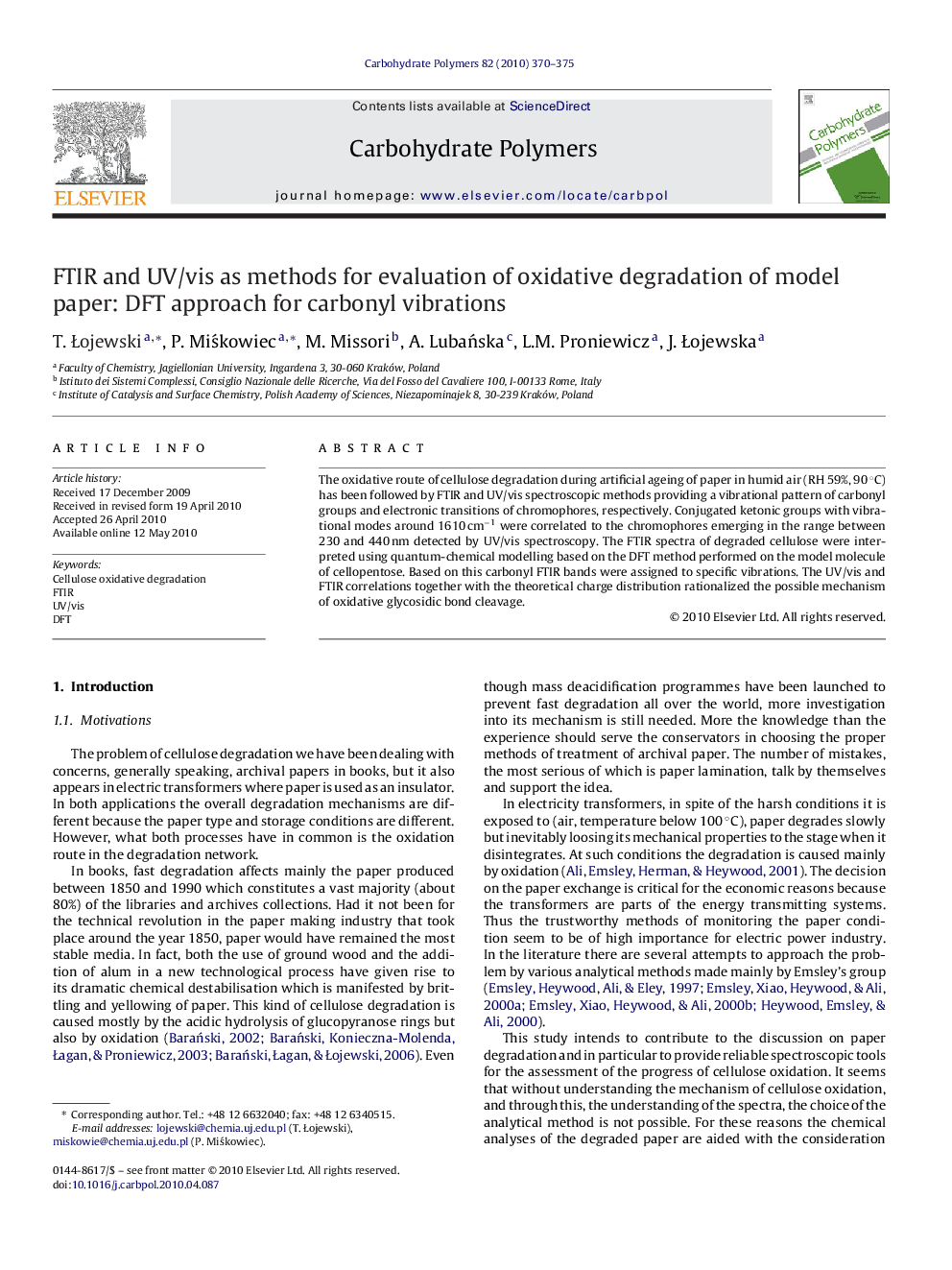| کد مقاله | کد نشریه | سال انتشار | مقاله انگلیسی | نسخه تمام متن |
|---|---|---|---|---|
| 1385436 | 982446 | 2010 | 6 صفحه PDF | دانلود رایگان |

The oxidative route of cellulose degradation during artificial ageing of paper in humid air (RH 59%, 90 °C) has been followed by FTIR and UV/vis spectroscopic methods providing a vibrational pattern of carbonyl groups and electronic transitions of chromophores, respectively. Conjugated ketonic groups with vibrational modes around 1610 cm−1 were correlated to the chromophores emerging in the range between 230 and 440 nm detected by UV/vis spectroscopy. The FTIR spectra of degraded cellulose were interpreted using quantum-chemical modelling based on the DFT method performed on the model molecule of cellopentose. Based on this carbonyl FTIR bands were assigned to specific vibrations. The UV/vis and FTIR correlations together with the theoretical charge distribution rationalized the possible mechanism of oxidative glycosidic bond cleavage.
Journal: Carbohydrate Polymers - Volume 82, Issue 2, 5 September 2010, Pages 370–375